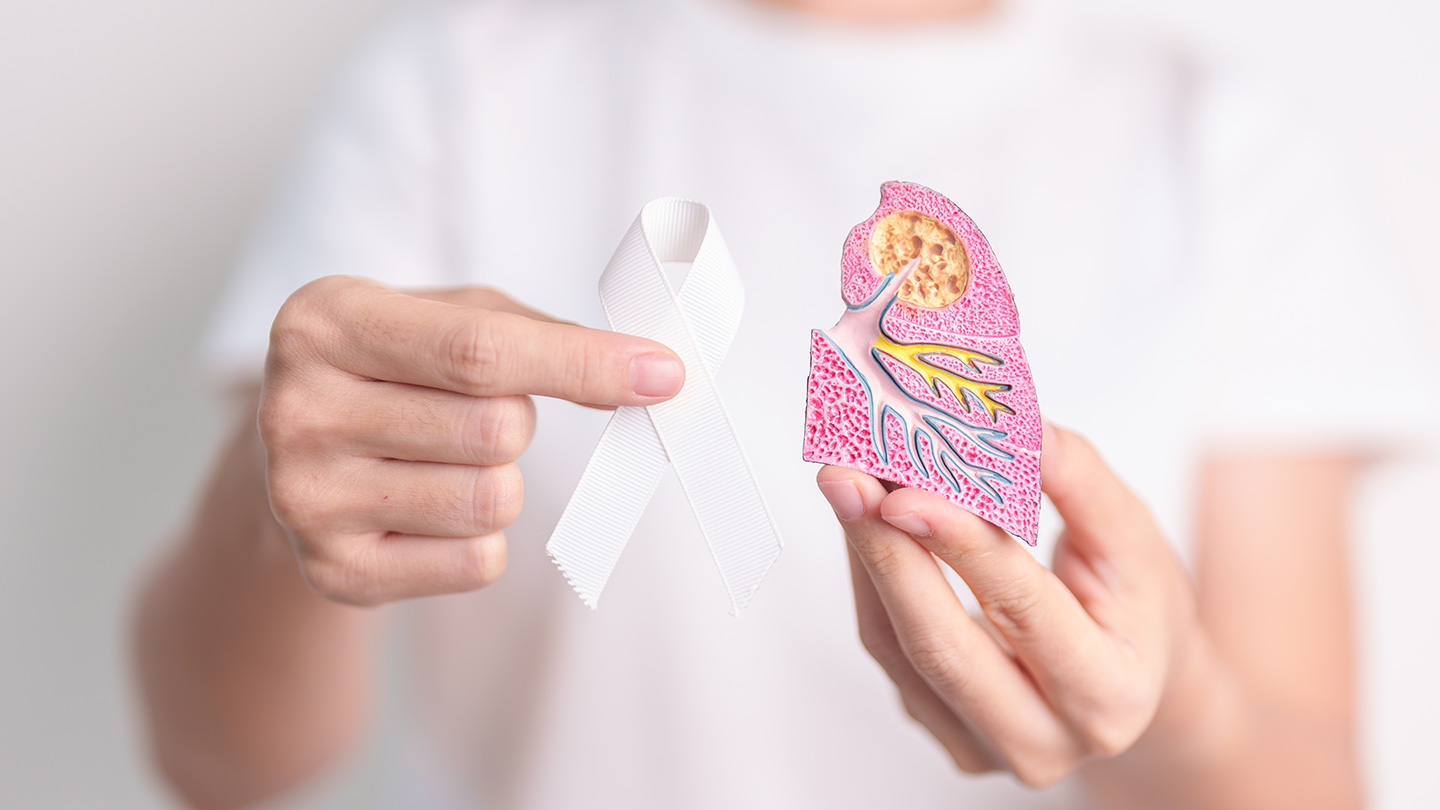Medical
Subtle Signs of Lung Cancer
Lung cancer often whispers before it screams. From lingering coughs to unexpected voice changes, the body drops hints you don’t want to miss.

It didn’t start with anything dramatic. Just a nagging cough. You know the kind—annoying but manageable—the type you blame on allergies or last week’s cold. For 54-year-old Neelam, it was nothing worth cancelling her yoga classes over. “Monsoon always messes with my throat,” she’d say casually. But weeks turned into months, and suddenly the cough brought blood-tinged phlegm and breathlessness. That’s when the real story began: Stage II lung cancer.
Lung cancer doesn’t always arrive with flashing warning signs. It prefers the slow, silent entrance, often disguised as everyday ailments. And by the time we take it seriously, it is several steps ahead.
Related story: How Much Do You Know About Your Lung Health?
What Should You Actually Watch Out For?
1. A Cough That Won’t Quit. Yes, cough happens. Pollution, allergies, and leftover flu. But a persistent cough that hangs around more than 2-3 weeks deserves a closer look, especially if it changes in sound, becomes deeper, or brings up rust-colored phlegm. According to a study in the Journal of Thoracic Oncology (2019), chronic cough was the most commonly reported early symptom in lung cancer patients, often misattributed to benign conditions.
Related story: Parents’ Guide to Navigating Cough and Cold
2. Unexplained Weight Loss. We all love the idea of dropping a few kilos effortlessly, until it happens without trying. Losing weight without changes in diet or exercise could signal that your body is burning energy trying to find something off. The Mayo Clinic Proceedings (2018) reported that 60 per cent of lung cancer patients experienced noticeable weight loss before diagnosis. Why? Tumours release chemicals that speed up metabolism.
Related story: Fat Loss Vs Weight Loss
3. Chest Pain or Discomfort. Not all chest pain feels dramatic. Sometimes it’s dull, aching, or just uncomfortable, especially when you laugh, breathe deeply, or cough. This might mean the cancer is pressing against the wall structures or nerves.
4. Shortness of Breath. Does walking a single flight of stairs suddenly feel like a trek up Mount Everest? When tumours block airways or cause fluid buildup, even mild activity can leave you gasping. A 2020 study published in BMC Pulmonary Medicine found that dyspnea (shortness of breath) was a common presenting symptom, especially in women over 55.
Related story: Reasons You Are Experiencing Shortness of Breath
5. Recurring Infections. Do you keep getting bronchitis or pneumonia every few months? Tumours can partially block airways, trapping bacteria and making your lungs a breeding ground for infections. According to the British Medical Journal (2022), recurrent lower respiratory infections, particularly in smokers, significantly raise the index of suspicion for underlying malignancies.
Related story: Managing Upper Respiratory Tract Infections
6. Hoarseness or Voice Changes. Your voice has a personality, right? So when it suddenly sounds raspy, strained, or “off” for more than two weeks, it could signal pressure on the laryngeal nerve, a lesser-known but serious sign of lung cancer.
Lung Cancer Isn’t Just a Smoker’s Disease
Here’s the shocker: Around 15-20 per cent of people who develop lung cancer have never smoked. The cause?? Secondhand smoke, radon exposure, environmental toxins and sometimes bad genetic luck. According to the American Cancer Society (2025), lung cancer in non-smokers is one of the leading causes of cancer death among women globally.
Did you know that lunges have no pain receptors? That’s why lung tumours can grow undetected for so long. You often don’t feel anything until nearby tissues get involved. If your body keeps whispering through a stubborn cough, a wheezy breath, or that strange tightness, don’t ignore it. Catching lung cancer early dramatically improves the outcome.
Related story: Strategies for Taking Care of Your Lungs
Regular health checks are essential for everyone, but they are particularly important for individuals who are at risk of or already have issues related to the lungs. Taking regular health checks can help detect lung cancer at an early stage when it is easier to manage and treat. With the UR.Life HRA, we help you to invest in your well-being through seamless interventions and targeted medical treatments. Our holistic wellness approach caters to all aspects of your well-being. We ensure that you can bring your whole self to work.
With our medical professionals by your side, routine health check-ups will never be an issue. Advanced laboratory technologies back UR.Life’s Occupational Health Centers (OHC), and with highly qualified experts/technicians, we’re committed to delivering trusted and quality recommendations, modifications and advice to you.
EXPLORE MORE
Baldness isn’t just about ageing; it’s a complex condition influenced by biology, habits, and health. Understanding it is the first step toward managing it.
Breast cancer before 40 is rare, but not impossible. Know these warning signs so you can spot them well in time.
Osteopenia and osteoporosis sit on the same spectrum, but the impact on your health isn’t the same. Here’s what to know.
Struggling with energy crashes or rising blood sugar? Read on to tackle insulin resistance at the root.










